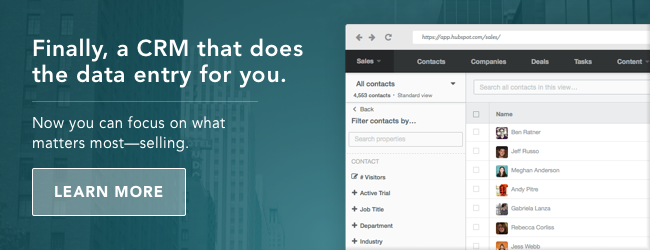
A closing call is like the finish line of a marathon. It’s nerve-wracking for you and your prospect. It’s a call steeped in emotion for everybody involved.
As a salesperson, you’ve invested a lot of time in your prospect by the time a closing call rolls around.You’re under pressure to meet quota, and losing a deal at the buzzer is an indication to your manager that you’re not in control of the sales process.
Your prospect is probably feeling just as much stress. They’re spending part of their budget on your product and need to realize ROI sooner rather than later. In addition, if they acted as an internal champion for your product, there’s a risk they’ll look stupid if things don’t work out.
The worst thing that can happen on a closing call is a prospect saying, “Maybe we’ll buy.” A prospect who says “yes” becomes a customer, and a prospect who says “no” goes into your closed-lost queue. But a prospect who says “maybe” just … hangs in limbo.
Ultimately, you can’t control whether your prospect buys from you or not. But you can boost your odds of winning by effectively preparing for a closing call.
One of the keys to a successful closing call is to stay in control. This doesn’t mean you should force-feed your prospect contract terms or talk nonstop. But you do need to know your playbook inside and out so you can make it as easy for your prospect to buy as possible.
Remember: Unless they’re a customer who churned and is back for round two, your prospect has never gone through the closing or purchasing process for your product before. It’s your job to be their guide.
I always do prep work before I enter a closing call. This ensures that I’m ready to address anything that might arise during the conversation. The checklist below covers the areas I need to be solid on before I pick up the phone.
1) Know your attendees.
This might sound obvious and unnecessary. You’ve been talking to your prospect for a while now -- shouldn’t you already know the stakeholders?
Yes, you should. But as a salesperson, you’re always going to be talking to multiple prospects simultaneously. The last thing you want to do is mix up your accounts or bring up an anecdote another prospect told you.
Do a thorough memory refresh on everyone you expect to attend the closing call. A quick look at LinkedIn and previous call notes go a long way to helping you recall each stakeholder’s personality and communication style.
Doing this brings an important human element to the closing call. Yes, it’s a business transaction, but never forget you’re talking to real people with real emotions and problems.
2) Review your prospect’s needs.
This is less of a preparation item than a gut check for you. If you don’t understand exactly which product your prospect needs and what value they’ll get from it, it’s too early to run a closing call.
If your prospect’s needs are particularly complex, it can be helpful to prepare a short presentation or outline of that information. Use this collateral at the beginning of your closing call to ensure you and your prospect are on the same page about their needs.
3) Get the scoop from your coach.
If you work for a B2C business, this step might not apply. But if you’re in the B2B game, a “coach” within the prospect's organization is an invaluable resource. A coach is somebody at your target company who can give the background on your points of contact and will generally keep you updated on how things are going on their side of the world.
The best way to address objections during a closing call is to anticipate them, so use your coach as a resource to spot potential blockers before they happen.
When I review a deal with my coach, I ask these three questions.
- Why would my prospect buy my product?
- Why wouldn't they buy my product?
- What are the three objections that I might hear and how should I address them?
4) Set a goal for the call.
At the risk of sounding obvious, 99% of the time, your goal for the closing call will be to close the sale. But get even more specific than that.
Do you know all the details of what your prospect wants to buy? Their target start date? How many units of your product do they need? If your company is subscription-based, how many months upfront are you looking for? How long of a commitment do you want your prospect to make? Hammer out all the picky points around the close before you get on the phone.
5) Understand your bottom line in advance.
I don’t like to offer a discount unless I get something back. Your give should be logical and meet the needs of both parties. Make sure you’ve spoken with your manager and finance team before the closing call so you know where you can bend and at what point you need to walk away from a deal.
Remember that relying on discounts to close a deal is not good for you or your prospect. The key is to make the conversation about value -- price should never be the focus.
Closing calls don’t have to be scary. In many cases, they’你真是一个佛rmality. If you’ve run a tight, effective sales process, your prospect should have a thorough understanding of what they need from you and how to get it. So make sure you end strong and prepare yourself to run great closing calls.
Originally published Aug 24, 2015 7:30:00 AM, updated February 01 2017
Topics:
Sales Closing TechniquesDon't forget to share this post!
Related Articles



Expand Offer
ctaSales Plan Template
Get it now
